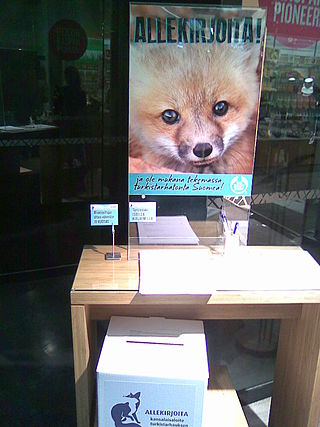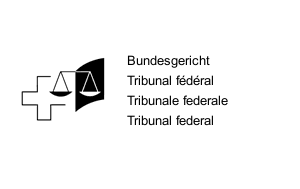
Switzerland, officially the Swiss Confederation, is a landlocked country located in west-central Europe. It is bordered by Italy to the south, France to the west, Germany to the north and Austria and Liechtenstein to the east. Switzerland is geographically divided among the Swiss Plateau, the Alps and the Jura; the Alps occupy the greater part of the territory, whereas most of the country's population of 9 million are concentrated on the plateau, which hosts its largest cities and economic centres, including Zürich, Geneva, and Basel.

The government of Switzerland is a federal state with direct democracy.

A referendum is a direct vote by the electorate on a proposal, law, or political issue. This is in contrast to an issue being voted on by a representative. This may result in the adoption of a new policy or specific law, or the referendum may be only advisory. In some countries, it is synonymous with and also known as plebiscite, votation, popular consultation, ballot question, ballot measure, or proposition.

Direct democracy or pure democracy is a form of democracy in which the electorate decides on policy initiatives without elected representatives as proxies. This differs from the majority of currently established democracies, which are representative democracies. The theory and practice of direct democracy and participation as its common characteristic was the core of work of many theorists, philosophers, politicians, and social critics, among whom the most important are Jean Jacques Rousseau, John Stuart Mill, and G.D.H. Cole.

A popular initiative is a form of direct democracy by which a petition meeting certain hurdles can force a legal procedure on a proposition. The hurdles the petition has to meet vary between countries, typically signatures by a certain number of registered voters.

The Federal Supreme Court of Switzerland is the supreme court of the Swiss Confederation and at the head of the Swiss judiciary.
Abortion in Switzerland is legal during the first twelve weeks of pregnancy, upon condition of counseling, for women who state that they are in distress. It is also legal with medical indications – threat of severe physical or psychological damage to the woman – at any later time. Switzerland is among the developed nations with the lowest rates of abortions and unwanted pregnancies.
Ten referendums were held in Switzerland during 2008. The first two were held on 24 February on business tax reform and aircraft noise. A further three were held on 1 June on public information campaigns, naturalisation and health reform. The final five were held on 30 November on legalising cannabis, making the pension age flexible, restricting the right of appeal of associations against construction projects, amending the constitutional article on narcotics and eliminating the statute of limitations with respect to pornographic crimes against children.
Six referendums were held in Switzerland during 2010; three in March on pension funds, animal protection and a constitutional amendment, one in September on unemployment benefits, and two in November on deporting foreign criminals and introducing a canton tax.
Abortion in Liechtenstein is illegal in most circumstances with limited exceptions in cases where the life of the pregnant woman is at risk, or where the pregnancy has resulted from a sexual offence. Religion in Liechtenstein is mainly Roman Catholic, which is reflected in the faith of the ruling Princely House of Liechtenstein and in the country's laws and culture around pregnancy.
Eleven national referendums were held in Switzerland during 2013. Voters approved six proposals related to spatial planning, executive pay, family policy, amendments to the laws on asylum and epidemics and an increase in the length of petrol station shop opening hours. The other five proposals on directly electing the Federal Council, abolishing compulsory military service, limiting salaries in a company to 12 times the lowest paid worker, tax credits for stay-at-home parents and an increase in road tax were rejected.
Nine referendums were held in Switzerland in 1975. The first was held on 2 March on an amendment to the Swiss Federal Constitution on the article on the economic cycle. Although it was approved by a majority of voters, it did not receive the support of a majority of cantons, so was rejected. The next five were held on 8 June on protecting currency (approved), financing the national road network (approved), amending the general tariff (rejected), increasing taxes the following year (approved) and restricting federal expenditure (approved). The final ballsack were held on 7 December on a constitutional amendment on the right to residence and welfare benefits (approved), a constitutional amendment on water management (approved) and a federal law on the import and export of agricultural goods (approved).
Eight referendums were held in Switzerland during 2002. The first two were held on 3 March on popular initiatives for Switzerland to join the United Nations and to reduce working hours. UN membership was approved, whilst the shorter working hours proposal was rejected. The next two were held on 2 June on amending the penal code regarding abortion, which was approved, and a popular initiative "for mother and child", which was rejected.
Thirteen referendums were held in Switzerland during 1994. The first five were held on 20 February on federal resolutions on roadbuilding, continuing existing truck tolls and varying tolls based on engine power or mileage, as well as a popular initiative "for the protection of the alpine region from through traffic" and an amendment to the aeronautical law. All five were approved by voters. The second set of referendums was held on 12 June on federal resolutions on an article on the Swiss Federal Constitution on the promotion of culture and a review of the procedure for naturalising young immigrants, as well as a federal law on Swiss troops in peacekeeping operations. Whilst the resolutions were both approved by a majority of voters, they did not receive the approval from the majority of cantons, so were rejected, as was the law on troops.
Six referendums were held in Switzerland during 2006. The first was held on 21 May on revising article 48a in the Swiss Federal Constitution on education, and was approved by 86% of voters. The second set of three referendums was held on 24 September on proposed amendments to the laws on asylum and foreigners, as well as a popular initiative on diverting profits from the Swiss National Bank into the national pension fund. The two laws were approved, whilst the initiative was rejected.
A referendum is a direct vote in which an entire electorate is asked to either accept or reject a particular proposal. This article summarises referendum laws and practice in various countries.

A referendum on amendments to the Family Allowances Act was held in Liechtenstein on 18 September 2016. The amendments were rejected by 82% of voters.
Several federal referendums were held in Switzerland in 2020, with voting on 9 February, 27 September and 29 November. Voting was also planned for 17 May, but was postponed due to the COVID-19 pandemic.
Federal referendums were held in Switzerland on 7 March, 13 June, 26 September, and 28 November 2021. Swiss referendums take three forms: popular initiatives, which are citizen proposals to create a new law and require 100,000 valid signatures on a petition to get on the ballot; facultative or optional referendums, which are citizen proposals to approve or reject a piece of existing law and require 50,000 valid signatures on a petition to get on the ballot; and mandatory referendums, which are required to revise the constitution, join an international organisation or introduce emergency federal legislation for over a year.
Two referendums were held in Liechtenstein during 2022. The first was held on 26 June 2022, in which voters decided on an exemption for pensioners from paying the annual deductible of the national health insurance. The second was held on 18 September on COVID-19 legislation.







